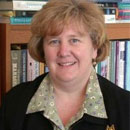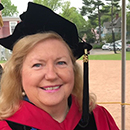Non-Licensure in Curriculum, Leadership and Inclusion
Non-Licensure
Lasell Master of Education also offers a non-licensure program in Curriculum, Leadership and Inclusion. This program provides teachers and consultants with expertise in designing and developing curriculum for diverse learners. Students are not required to pass the MTEL exams in this program, although any graduate from this program can take the MTELs should s/he so desire. As K-8 education continues to struggle with meeting the needs of an increasingly diverse student body, leadership is needed to effect change in the way we teach and design curriculum and how we train teachers to meet students where they live.
The mission of the Lasell University Master of Education degree programs is to provide new and experienced teachers with;
- a broad understanding of practice and theory related to curriculum and instruction.
- familiarity with the needs of diverse learners and resources for meeting those needs.
- engagement in professional collaboration; exploration and support of community resources.
- and experiences as consumers and producers of research.
The M.Ed. in Curriculum, Leadership and Inclusion is a flexible degree that will provide students multiple options to work in the field of education. And, if they so desire, graduates can take the MTELs and be prepared to teach in public schools. The goals of the program are:
1. Prepare teacher leaders to address the growing diversity of student needs in schools, not-for profits, and other education related contexts nationally and internationally.
2. Prepare graduate students in a cross-disciplinary field in education that can better respond to the needs in society including: addressing cultural and linguistic diversity, academic differences and disability, marginalization and discrimination in education curriculum, and application and evaluation of inclusive models of instruction and leadership.
3. Prepare graduate students to become consumers of the latest educational research so that they can link and close the research to practice divide and address societal issue related to activism, advocacy, and education for all students. This program is comprised of courses already offered and required within our licensure master's degree programs.
| Course Code | Course Title | Credits |
|---|---|---|
| Core Courses | ||
| ED711 | Curriculum & Assessment Diverse Learners* | 3 |
| ED712 | Literacy Instruction: Elementary* | 3 |
| ED713 | Reading Supports for Elementary Learners* | 3 |
| ED771* | Understanding/Using Educational Research | 3 |
| ED772* | Teacher as Researcher | 3 |
| ED773 | Teacher as Leader* | 3 |
| SPED711 | Learners with Special Needs* | 3 |
| SPED712 | Curriculum & Resources in SPED* | 3 |
| SPED721 | Inclusive Education* | 3 |
| SPED722 | Policy, Law, & Disability* | 3 |
Open Elective (6 credits). Any two graduate-level classes.
ED711 - Curriculum & Assessment Diverse Learners*
This course considers research, principles, and strategies for effective instruction and classroom organization, particularly in the context of supporting diverse learners and teaching in diverse settings. Topics include differentiated instruction, curriculum planning and resources, formal and informal assessments of student progress, modifications appropriate to meet linguistic and cultural differences, and accommodations for special needs learners. Requires classroom observations at multiple locations.
ED712 - Literacy Instruction: Elementary*
This course explores literacy learning and teaching in grades 1 – 6. Topics include the role of phonemic awareness, phonics, and word analysis in reading and writing; the relationship among vocabulary development, comprehension, and fluency; formal and informal assessments to measure literacy development and guide classroom instruction; and effective instructional strategies and materials to support elementary learners in reading and writing. Includes focus on differentiating instruction for readers and writers with diverse linguistic and cultural backgrounds. Requires a pre-practicum.
ED713 - Reading Supports for Elementary Learners*
This course examines formal and informal assessments of reading difficulties, especially those currently in use, and their analysis, interpretation, and application to classroom instruction and placement. Students explore strategies, materials, and modifications appropriate for classroom teachers, as well as specialized programs. Requires classroom observations. Prerequisite: ED 712.
ED720 - Mathematics Concepts & Curriculum
This course explores central areas of mathematics in the elementary classroom, as well teaching strategies and methods appropriate for learners at various stages of understanding. Topics include number and operations; functions and algebra; geometry and measurement; statistics and probability; and problem solving. Requires classroom teaching.
ED721 - Science & Technology Concepts/Curriculum
This course provides understanding of essential concepts in the physical and life sciences, including technology and environmental science. Reviews standards for teaching and learning science and technology, as well exploring area resources for teachers and elementary students. Integrates technology appropriate for elementary classrooms.
ED722 - Social Studies Concepts & Curriculum
This course provides understanding and critical examination of major events and eras in American and world history through varied perspectives. Includes strategies for integrating social studies and other content areas, including literacy and arts. Students explore local resources for teaching social studies and become familiar with Massachusetts Curriculum Frameworks.
ED761 - Sheltered English Immersion
This course provides a grounding in current theory and practice related to teaching English Language Learners. In particular, students learn to effectively shelter their content instruction, so that ELL students can access curriculum, achieve academic success, and contribute their multilingual and multicultural resources as participants and future leaders in the 21st century global economy. Course includes a pre-practicum in license-appropriate classrooms. Prerequisite: ED 713 or Department permission. As required by the state this course is 90% in face-to-face.
ED771* - Understanding/Using Educational Research
This course explores major paradigms of educational research, including concepts, methods, and terminology related to each. Students read, analyze, and discuss both seminal and current research in relevant areas; study trends in educational research; and apply findings to their own practice by designing a classroom-based research project with CPHS approval. Prerequisite: completion of at least 21 credits in the graduate education program. Requires presenting proposal in symposium setting
ED772* - Teacher as Researcher
This course focuses on conducting, refining, completing, analyzing, reporting, and presenting the research project designed in ED 771 in research paper format and presentation. Requires presenting findings in symposium setting. Prerequisite: ED 771.
ED773 - Teacher as Leader*
This course explores various aspects of leadership and change in education, business, and other professions. Includes theories and models of leadership, organizational change and behavior, and policy analysis, as well as approaches to mentoring and coaching. Helps participants identify their own leadership styles and goals.
ED796 - Practicum: Elementary
This course provides a minimum of 300 hours of student teaching experience in an elementary classroom under the supervision of a qualified professional. Includes a weekly seminar to discuss issues such as management, planning, professional development, and moral and ethical aspects of teaching. Prerequisites: Pass all required MTEL; cumulative minimum GPA of 3.0; complete at least 27 credits in the graduate education program.
ED797 - Pre-Practicum
Pre-Practicum (3 credits). This course provides a minimum of 150 hours of pre-practicum experience in a public school under the supervision of qualified professionals. Prerequisites: cumulative minimum GPA of 3.0 and approval by Department Chair or Graduate Coordinator.
ED798 - Additional Pre-Practicum
Additional Practicum (3 credits). This course provides a minimum of 150 hours of practicum experience and completion of the Candidate Assessment of Performance CAP in a public school under the supervision of qualified professionals. Prerequisites: cumulative minimum GPA of 3.0.
SPED711 - Learners with Special Needs*
This course provides information on characteristics of special needs learners, including physical, emotional, and learning disabilities, with a focus on how these needs may affect classroom organization, planning, and instruction. Introduces assessment, models of special education delivery, and multiple perspectives on educating special needs learners. Requires classroom observations.
SPED712 - Curriculum & Resources in SPED*
This course provides experience in curriculum planning and instruction that meets the needs of special education learners with specific disabilities. Requires classroom observation and teaching.
SPED721 - Inclusive Education*
This course provides knowledge and resources related to teaching special needs learners in an inclusive classroom. Topics include collaborating with other professionals to plan and deliver instruction, co-teaching, classroom management techniques, behavior interventions, assistive technology, and appropriate modifications, adaptations, and accommodations. Requires classroom observation and teaching.
SPED722 - Policy, Law, & Disability*
This course provides in-depth understanding of federal and state laws and regulations related to special education. Introduces resources for special needs learners, parents or care-takers, and teachers, including school professionals, services available in area communities, advocacy groups, professional associations, mental health care professionals, and medical professionals. Includes focus on collaboration among these various groups to support special needs learners and their families. Recommended prerequisites: SPED 711, SPED 712.
SPED753 - Assistive Technology in Education
This course is an in-depth exploration of current technology available for adaptive, assistive, and instructional applications. Students research and evaluate available applications and develop a professional resource file.
SPED754 - Advanced Assessment & Modification
This course explores selection, administration and interpretation of assessments related to special needs learners, particularly those used to assess intelligence, aptitude, and achievement; communication of results to school professionals, students, and parents/caregivers; and applications to classroom settings. Students should be generally familiar with assessment and referral processes. Includes field assignments.
SPED795 - Practicum: Moderate Disabilities PK - 8
This course provides a minimum of 300 hours of student teaching in two different classrooms under the supervision of qualified professionals. May be full time in an inclusive general education classroom or 75 hours in an inclusive general education classroom and 225 hours in a classroom for students with moderate disabilities. Includes a weekly seminar to discuss issues such as planning, teaching, collaboration, and moral and ethical aspects of teaching. Prerequisites: Pass all required MTEL; cumulative minimum GPA of 3.0; complete at least 27 credits in the graduate education program.

Cristina Haverty
Associate Vice President of Workforce Development and Global Engagement
Office: Alexander STC
Email: chaverty@lasell.edu

Lori Rosenthal
Assistant Provost; Professor of Psychology
Office: Plummer
Email: lrosenthal@lasell.edu

Keith Belmore
Associate Professor of Athletic Training and Graduate Chair of Athletic Training
Office: Alexander STC 104N
Email: KBelmore@lasell.edu

Linda Bucci
Professor & Program Chair of Justice Studies, Graduate Chair of Criminal Justice
Office: Plummer
Email: lbucci@lasell.edu

Sarah Giasullo
Assistant Professor of Athletic Training; Graduate Chair of Health Sciences
Office: Alexander STC 104T
Email: SGiasullo@lasell.edu

Janet Huetteman
Graduate Chair of Management and Marketing; Associate Professor of Marketing
Office: 23 Maple Street, Office #5
Email: JHuetteman@lasell.edu

Young-Tae Kim
Associate Professor of Sport Management; Graduate Interim Chair of Sport Management
Office: Alexandar STC
Email: ykim@lasell.edu

Ron Laham
Assistant Professor of Athletic Training/ Exercise Science
Office: Alexander STC
Email: RLaham@lasell.edu

Meryl Perlson
Chair of Communication; Professor of Communication
Office: Donahue 107
Email: mperlson@lasell.edu

Matthew Reilly
Chair of Business and Interim Chair of Sport Management; Assistant Professor of Business
Office: DeArment
Email: MReilly@lasell.edu

Claudia Rinaldi
The Joan Weiler Arnow ’49 Professor/Professor of Education, Chair of Education
Office: Brennan Library
Email: CRinaldi@lasell.edu

Nancy Waldron
Assistant Provost; Professor of Entrepreneurship and Management
Office: DeArment
Email: nwaldron@lasell.edu

Brian Wardyga
Professor of Communication; General Manager, 109.2FM WLAS & LCTV
Office: Brennan Library, G04F
Email: bwardyga@lasell.edu
- Academic Policies 19-20
- Admission to Graduate Studies
- Course Descriptions
- Graduate Financial Information
-
Programs of Study
- Master of Science in Human Resources
- Master of Education
- Master of Science in Marketing
- Master of Science in Communication
- Master of Science in Criminal Justice
- Master of Science in Management
- Master of Science in Nutrition for Human Performance
- Master of Science in Athletic Training
- Master of Science in Project Management
- Master of Science in Rehabilitation Science
- Master of Science in Sport Management
-
Graduate Certificates
- Athletic Administration
- Emergency and Crisis Management
- Digital Media
- Negotiations and Conflict Resolution
- Public Speaking
- Health Communication
- Homeland Security and Global Justice
- Hospitality and Event Management
- Human Resources Management 19-20
- Integrated Marketing Communication
- Management
- Marketing
- Project Management
- Public Relations
- Sport Leadership
- Sport Tourism and Hospitality Management
- Violence Prevention and Advocacy
- Teaching English Learners with Disabilities Certificate
- International Inclusive Education Certificate
- MBA





